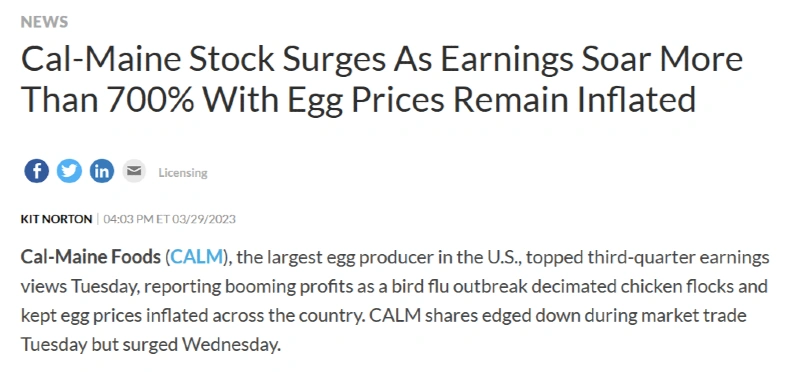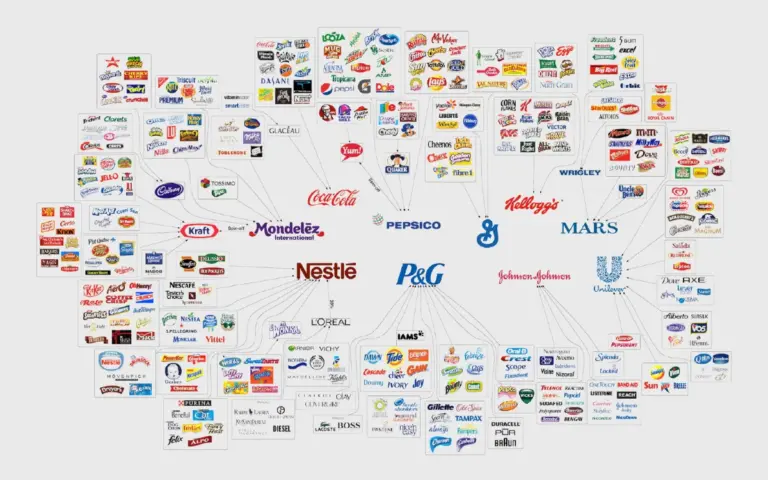In a significant legal victory, major food conglomerates including Kraft, General Mills, Kellogg, and Nestle were awarded $17.7 million in damages by a Chicago federal jury on December 1st. The verdict came after a compelling argument that they had been unfairly charged for egg products in a price-fixing conspiracy orchestrated by some of the largest U.S. egg producers and industry trade groups.
While the $17M+ is substantial, it could potentially triple under U.S. antitrust law, reaching an impressive $53 million.
The decision marked the culmination of the second phase of a complex two-part trial focused on Cal-Maine Foods, the nation’s largest egg producer and distributor, and Rose Acre Farms, the second-largest, accused of artificially inflating egg prices.
The jury’s earlier verdict on November 21st had already found the egg producers liable for their alleged involvement in the antitrust conspiracy following a lengthy five-week trial. Notably, Cal-Maine, headquartered in Ridgeland, Mississippi, as well as the other defendants, had consistently denied any wrongdoing throughout the legal proceedings.
In response to the damages award, Cal-Maine characterized the sum as “modest” compared to the plaintiffs’ initial claims. The company stated that it would carefully assess its options, including the possibility of an appeal. Rose Acre Farms expressed disappointment with the jury’s decision and the accompanying damages award in their statement. Lawyers representing the remaining defendants didn’t immediately provide comments.

It’s worth noting that the damages awarded were limited to alleged overpayments that occurred within a four-year period during the mid-2000s. Initially seeking $31 million in damages, the plaintiffs ultimately secured this $17.7 million award.
Brandon Fox of the law firm Jenner & Block, a lead attorney for the food companies, expressed gratitude for the jury’s service and findings, emphasizing the significance of the case. The jury’s determination held Cal-Maine accountable alongside other defendants, including the trade associations United Egg Producers and United States Egg Marketers. Consequently, Cal-Maine will share responsibility for the damages award with the other three defendants.
Throughout the trial, attorneys for the defendants argued that consumer demand and independent corporate interests were the driving factors behind their business decisions.
More To Discover
- The Future of Eggs Is Here: Precision Fermentation Means Flocks Won’t Need To Produce Eggs
- Climate Change vs. America’s $253 Billion Fishing Industry: Senate Hears From Experts
- Harvard’s Lithium Metal Battery Lasts For Thousands of Cycles And Charges In Minutes
- Carnegie Mellon Study Proves Grocery Delivery Is Less Sustainable than In-Store Shopping
Cal-Maine has requested U.S. District Judge Steven Seeger to enter judgment in their favor, potentially rendering the jury’s verdict void, citing insufficient evidence on both liability and damages as their grounds for this request. This request is currently pending.
In conclusion, the recent verdict in the case of Kraft Foods Global Inc v. United Egg Producers Inc underscores the legal ramifications of antitrust violations in the food industry, sending a message that even giants in the sector are not immune to the consequences of price-fixing conspiracies.




















